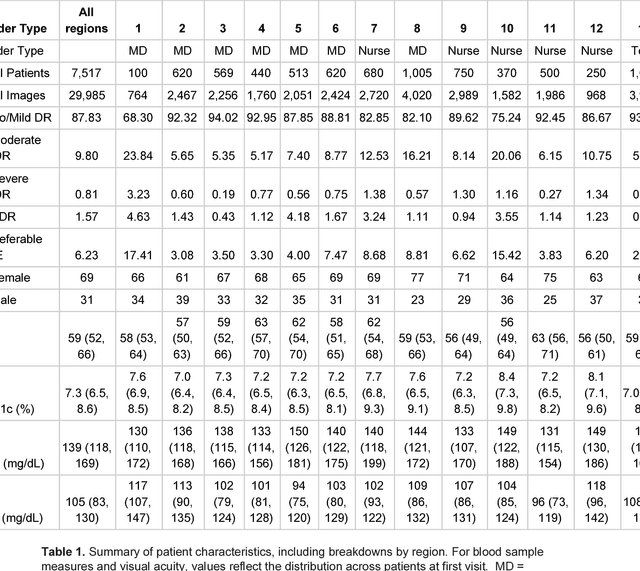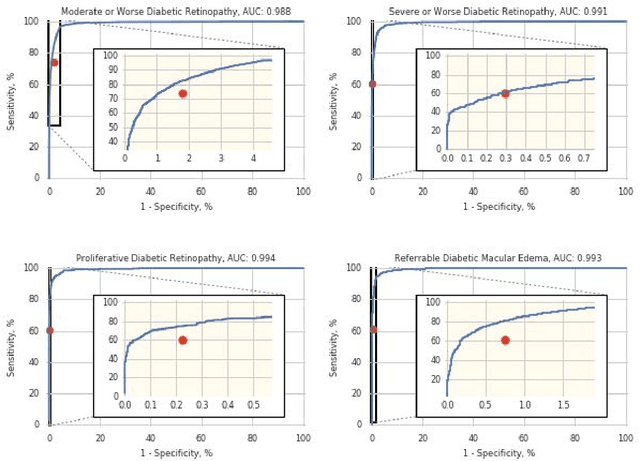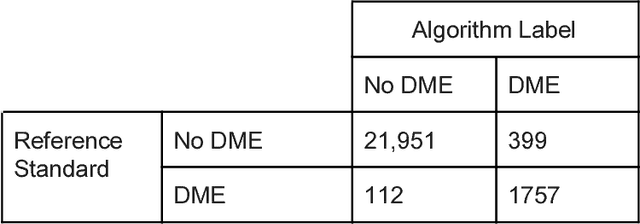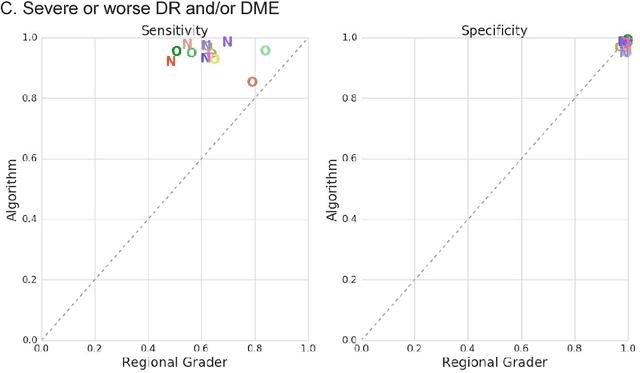Chetan Rao
Deep Learning vs. Human Graders for Classifying Severity Levels of Diabetic Retinopathy in a Real-World Nationwide Screening Program
Oct 18, 2018



Abstract:Deep learning algorithms have been used to detect diabetic retinopathy (DR) with specialist-level accuracy. This study aims to validate one such algorithm on a large-scale clinical population, and compare the algorithm performance with that of human graders. 25,326 gradable retinal images of patients with diabetes from the community-based, nation-wide screening program of DR in Thailand were analyzed for DR severity and referable diabetic macular edema (DME). Grades adjudicated by a panel of international retinal specialists served as the reference standard. Across different severity levels of DR for determining referable disease, deep learning significantly reduced the false negative rate (by 23%) at the cost of slightly higher false positive rates (2%). Deep learning algorithms may serve as a valuable tool for DR screening.
Using machine learning for medium frequency derivative portfolio trading
Dec 19, 2015



Abstract:We use machine learning for designing a medium frequency trading strategy for a portfolio of 5 year and 10 year US Treasury note futures. We formulate this as a classification problem where we predict the weekly direction of movement of the portfolio using features extracted from a deep belief network trained on technical indicators of the portfolio constituents. The experimentation shows that the resulting pipeline is effective in making a profitable trade.
 Add to Chrome
Add to Chrome Add to Firefox
Add to Firefox Add to Edge
Add to Edge